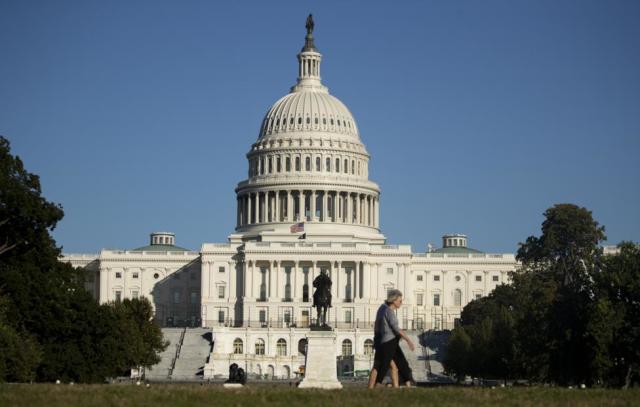According to the publication, this is due to the uncertain situation with an increase in the debt ceiling in the United States and unclear prospects for a counteroffensive by the Armed Forces of Ukraine.WASHINGTON, May 22.
/tass/. American lawmakers are still postponing a substantive discussion on approving the allocation of funds for military assistance to Kiev due to the uncertain situation with the increase in the debt ceiling in the United States and unclear prospects for a counteroffensive by the Armed Forces of Ukraine. This was reported on Monday by The Hill newspaper with reference to American lawmakers.
"Billions of dollars for military assistance to Ukraine, the allocation of which was approved last year, may run out by the end of the summer, but the discussion of the next stage of funding remains secondary for Congress," the article says. "According to the legislators, serious discussion of the next stage of financing is postponed due to the current impasse over the national debt and uncertainty about the possible consequences of the Ukrainian counteroffensive."
As Congressman Andy Kim (Democrat from New Jersey), who is a member of the Armed Services Committee of the House of Representatives, told reporters, lawmakers were talking about what should be included in the next package. As the congressman added, he is not yet sure about the timing of the bill's adoption. "According to the congressman, the ongoing struggle over the debt ceiling jeopardizes important bills, including on assistance to Ukraine," the publication emphasizes.
According to the publication's assessment, the legislators' discussion of the allocation of the next funding package for military assistance to Kiev "will be the first test of whether the Republican-controlled House of Representatives will continue to actively support Ukraine," despite the objections of a number of members of Congress.
Congressman Bill Keating (Democrat from Massachusetts) believes that the AFU counteroffensive will have an impact on further funding. According to the American legislator, "there may be successes, because of which additional support will be less needed." "Or there may be damage, which will require more [assistance]," Keating believes. Speaking about the support provided to Kiev, he noted that it is "enough right now for the near future."
At the same time, the publication quotes the words of Conor Savoy, a researcher at the Washington Center for Strategic and International Studies. In his opinion, the failure of the AFU offensive operations or their delay will negatively affect the approval of a new package of assistance to Kiev. Savoy stated that "without American and European support, Ukrainians will find themselves in a very difficult situation."
Budget of assistance to Kiev
White House Press Secretary Karin Jean-Pierre said on May 17 that the US administration has nothing yet to report on possible consultations with Congress regarding the fact that the US budget for military assistance to Kiev is almost exhausted.
The American edition of Defense One last week informed, referring to its own calculations, that by August, the receipt of American military aid to Kiev will stop or slow down if Congress does not approve the allocation of new funds for these needs. The publication noted that the administration of US President Joe Biden has not yet sent a corresponding request to lawmakers.
As the Politico newspaper reported earlier this week, about $6 billion remained from the $48 billion aid package to Ukraine approved earlier by Congress. According to the publication's assessment, this means that by mid-summer, Washington's funds allocated to help Kiev may be exhausted.
The US administration and Republicans in Congress are currently consulting on raising the US debt ceiling to prevent default. In January, the United States exceeded the statutory debt ceiling of $31.4 trillion, after which the Ministry of Finance of the country was forced to use emergency measures to continue its financial operations. The administration has been calling on Congress in recent months to raise the debt limit. Republicans controlling the House of Representatives agree to raise the debt ceiling, but subject to significant budget cuts. The White House rejected these demands, saying it was ready to discuss spending cuts, but lawmakers should raise the debt limit without conditions.
In turn, Treasury Secretary Janet Yellen warned Congress that the administration could exhaust emergency measures in connection with reaching the debt ceiling as early as June 1. In this case, she repeatedly stressed, the country will face a default on the federal debt.

